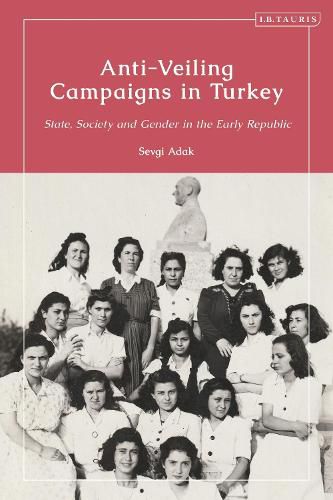Readings Newsletter
Become a Readings Member to make your shopping experience even easier.
Sign in or sign up for free!
You’re not far away from qualifying for FREE standard shipping within Australia
You’ve qualified for FREE standard shipping within Australia
The cart is loading…






The veiling and unveiling of women have been controversial issues in Turkey since the late-Ottoman period. It was with the advent of local campaigns against certain veils in the 1930s, however, that women’s dress turned into an issue of national mobilisation in which gender norms would be redefined. In this comprehensive analysis of the anti-veiling campaigns in interwar Turkey, Sevgi Adak casts light onto the historical context within which the meanings of veiling and unveiling in Turkey were formed. By shifting the focus from the high politics of the elite to the implementation of state policies, the book situates the anti-veiling campaigns as a space where the Kemalist reforms were negotiated, compromised and resisted by societal actors. Using previously unpublished archival material, Adak reveals the intricacies of the Kemalist modernisation process and provides a nuanced reading of the gender order established in the early republic by looking at the various ways women responded to the anti-veiling campaigns. A major contribution to the literature on the social history of modern Turkey, the book provides a complex analysis of these campaigns which goes beyond a simple binary between liberation and oppression.
$9.00 standard shipping within Australia
FREE standard shipping within Australia for orders over $100.00
Express & International shipping calculated at checkout
The veiling and unveiling of women have been controversial issues in Turkey since the late-Ottoman period. It was with the advent of local campaigns against certain veils in the 1930s, however, that women’s dress turned into an issue of national mobilisation in which gender norms would be redefined. In this comprehensive analysis of the anti-veiling campaigns in interwar Turkey, Sevgi Adak casts light onto the historical context within which the meanings of veiling and unveiling in Turkey were formed. By shifting the focus from the high politics of the elite to the implementation of state policies, the book situates the anti-veiling campaigns as a space where the Kemalist reforms were negotiated, compromised and resisted by societal actors. Using previously unpublished archival material, Adak reveals the intricacies of the Kemalist modernisation process and provides a nuanced reading of the gender order established in the early republic by looking at the various ways women responded to the anti-veiling campaigns. A major contribution to the literature on the social history of modern Turkey, the book provides a complex analysis of these campaigns which goes beyond a simple binary between liberation and oppression.